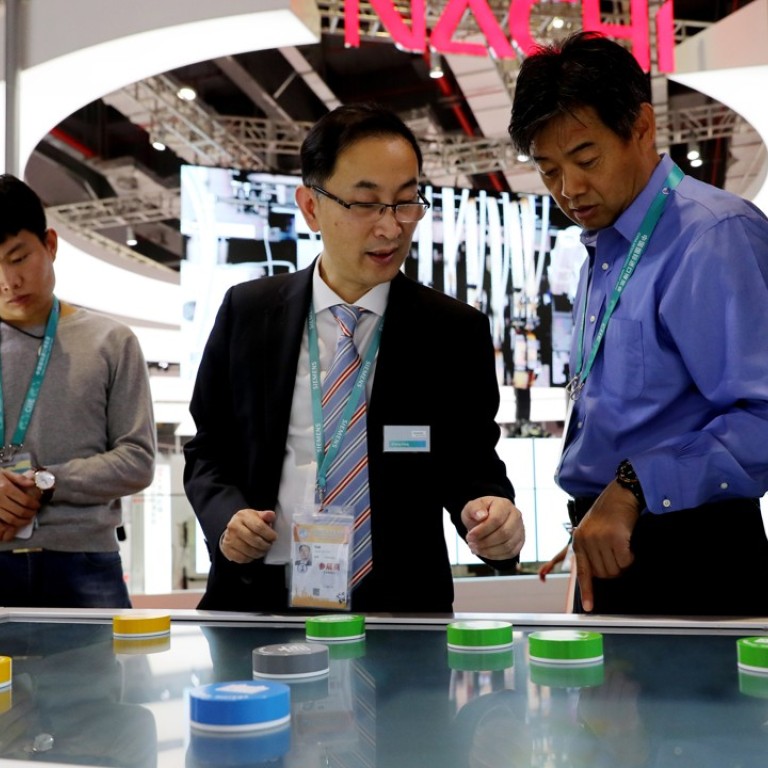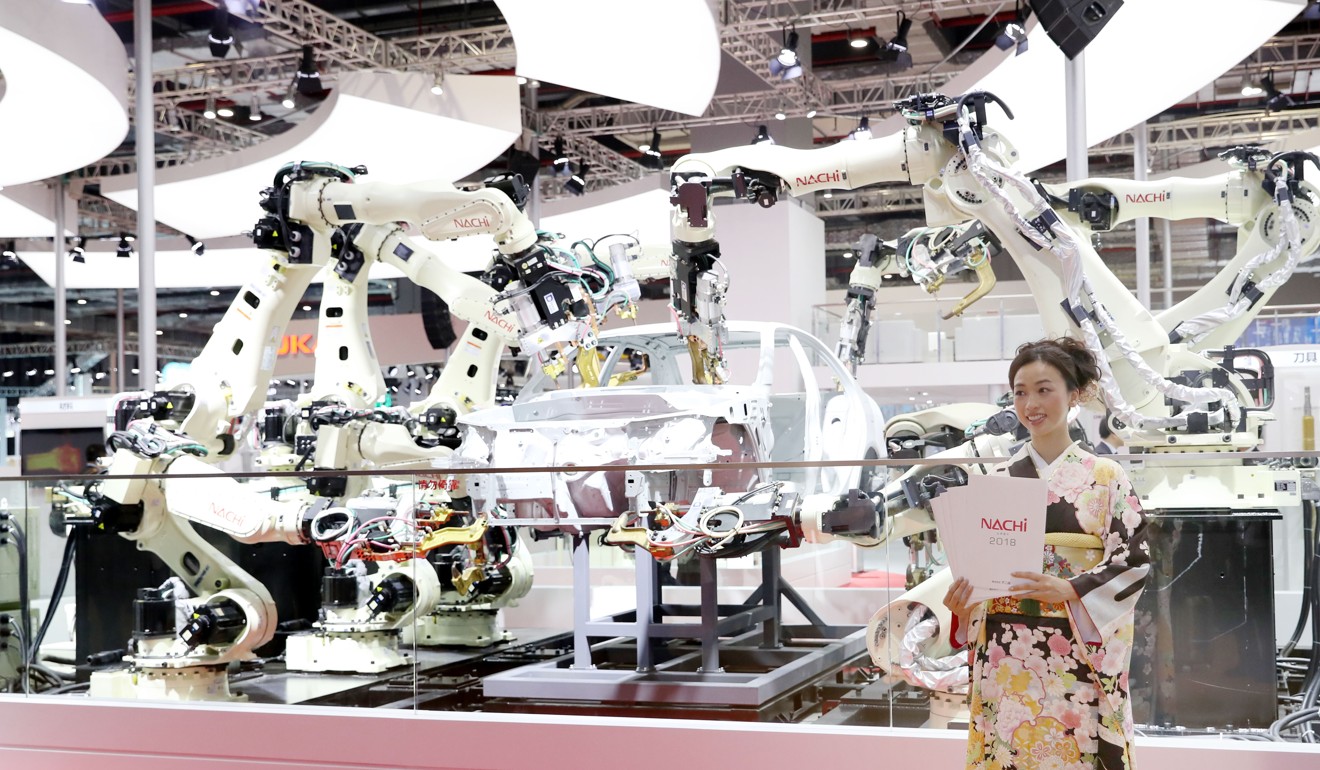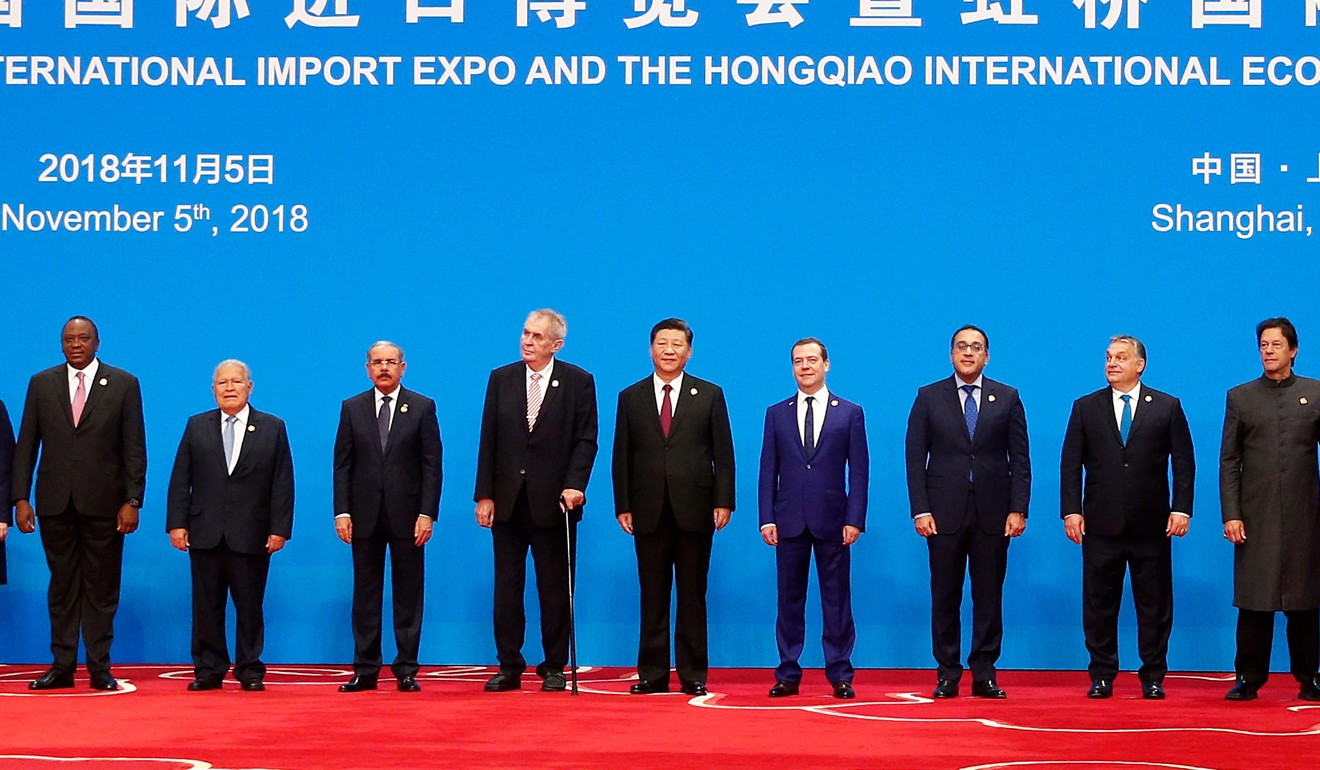
Despite little US presence, China’s import expo proved crowded enough on Day 1
- First China International Import Expo opens with tens of thousands trying to get in
- Local officials told to buy so that foreign exhibitors can return home with pockets full
Crowds flocked to the opening of China’s import fair on Monday despite a big snub from Washington and the meagre presence of US exhibitors – allowing the Shanghai government to breathe a sigh of relief.
With Beijing and Washington locked in a trade war, the US government had sent none of its senior government officials to the huge China International Import Expo in the financial hub.
Although 180 US companies took part, the American presence at the fair was noticeably smaller than it might have been. The show also included no American “national pavilion”.
Joining the US in absentia was Japan. The five other G7 nations – Germany, Britain, France, Italy and Canada – had exhibit booths in the hall.
Nevertheless, people streamed into the 1.5 million square metre National Exhibition and Conference Centre as soon as the gates opened to the general public on Monday afternoon.
More than 3,000 companies from 130 countries will be trying to sell into a market of 1.3 billion consumers over the fair’s six-day duration. With 400,000 purchasing agents expected to attend, the fair is creating a festival feeling in China’s metropolis.
Many Shanghai offices and companies have granted staff a three-day break for the first part of the week.
So many people crowded the exhibition hall on opening day that the first-floor safety check system went down, leaving the throng stuck between the first and ground floors for around half an hour.
The expo is Beijing’s latest attempt to convince its global partners of its commitment to free trade and opening up access to its markets amid the simmering trade war.
President Xi Jinping’s keynote speech on Monday morning voiced China’s commitment to free trade.

Making it clear that Beijing intends to open the Chinese economy wider to the world and protect globalisation, the president put the nation’s estimated total purchase of foreign goods over the next 15 years at US$30 trillion with another US$10 trillion in services.
Lin Li, a government official from southeast China’s Fujian province, said he had encouraged local businesses over the last six months to place orders at the expo to ensure it would be a success.
Britain’s pavilion – which was not attracting much foot traffic – featured the slogan “extraordinary innovation” on a wall. The neighbouring Egypt pavilion had a pyramid-shaped entrance and walls covered with ancient Egyptian images.
By contrast, the main ground-floor hall where business exhibitors promoted their wares was livelier. Visitors found eight blocks of products ranging from electronics and auto parts to agriculture.
Costco, the US multinational chain of membership-only warehouse clubs, was among American businesses with a spot in the hall. Its booth had an upbeat atmosphere with nearly a dozen staff actively greeting visitors and offering samples of imported dried blueberries.

“Come check out Costco! We are going to open our first warehouse in Shanghai next year,” booth salespeople were telling passers-by. A person in charge of the Costco booth, who refused to give her name, said Costco aimed to promote their brand through the event.
“Many Chinese customers are beginning to know our brand, we thought it would be useful for them to know that we also sell on Tmall and will have a store next year,” she told the South China Morning Post.
“The market for imported goods is definitely there, as Chinese spenders keep gaining higher spending power.”
Eric Rondolat, the chief executive and chairman of Signify, formally known as Philips Lighting, a unit of Dutch electronics maker Royal Philips, said his company is “grateful to be invited to this event as it is an example of the Chinese belief in cooperation and partnerships as a basis for progress”, according to a press release.
Additional reporting by Sidney Leng and Daniel Ren


